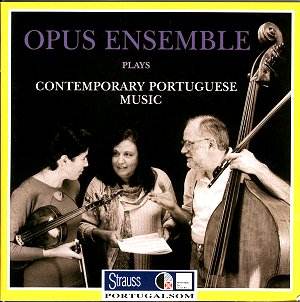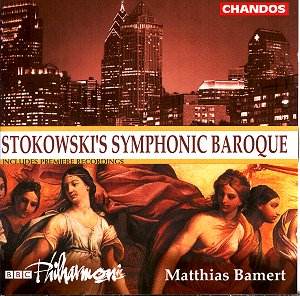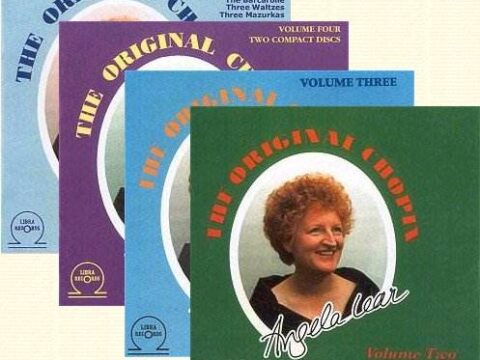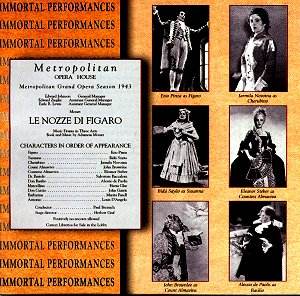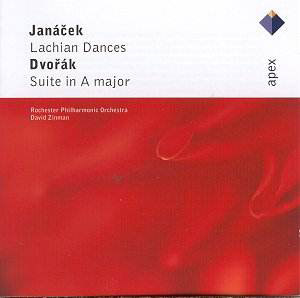 Composer: Leoš Janáček
Composer: Leoš Janáček
Works: Lachian Dances; Antonín Dvořák, Suite in A major
Performers: Rochester Philharmonic Orchestra, David Zinman (conductor)
Recording: January 29, 1984, Hochstein Auditorium, Rochester, New York
Label: APEX 7559 79677 2
Leoš Janáček and Antonín Dvořák, both titans of Czech music, provide a captivating juxtaposition on this recording, showcasing the breadth of Czech folk influence while illuminating the transition between 19th and 20th-century stylistic paradigms. Janáček’s “Lachian Dances,” composed in 1889, reflects his early idiom—rich in folk motifs and vibrant rhythms—while Dvořák’s “Suite in A major,” crafted during the American period of his career, offers a more expansive and cosmopolitan musical language. The Rochester Philharmonic under David Zinman delivers a commendable performance that is as nuanced as it is lively, allowing the listener to appreciate the cultural and historical contexts of these works.
Zinman’s interpretation of Janáček’s “Lachian Dances” reveals a deep understanding of the composer’s folk roots. The orchestral textures are handled with grace, capturing the lilting quality of the rhythms that are both dance-like and reflective. The performance exhibits a commendable balance between the lively outer sections and the more introspective slower dances, where the melodic contours shine with a beguiling clarity. An exemplary moment occurs in the second dance, where the woodwinds weave a delicate tapestry that evokes the pastoral landscapes of Moravia. This attention to phrasing and detail imbues the work with a sense of spontaneity akin to the original folk traditions that inspired Janáček.
In contrast, Dvořák’s “Suite in A major” showcases the composer at the height of his powers. Zinman’s conducting brings forth the freshness of Dvořák’s melodies, which, despite their American influences, remain rooted in a Bohemian idiom. The orchestration, originally for piano and later adapted, is rendered with a buoyancy that highlights Dvořák’s characteristic rhythmic vitality. The first movement, marked Allegro, is particularly striking; the orchestra’s execution of the syncopated rhythms is both precise and exuberant. The second movement, in its lyrical grace, underscores the orchestra’s ability to navigate the emotional landscape with sensitivity. Here, the strings’ phrasing captures the essence of Dvořák’s melodic inventiveness, creating a vivid contrast with the more vigorous outer movements.
The recording quality, though not groundbreaking, serves the performances well. The sound is clear and well-balanced, allowing for an intelligible interplay of orchestral textures. The engineering provides a reliable perspective that supports the detailed interplay of the woodwinds, brass, and strings, although one might wish for a more expansive acoustic that could elevate the orchestral sound. Nevertheless, the fidelity is commendable, with sufficient clarity to appreciate the intricacies of both composers’ orchestrations.
While the total duration of 47 minutes may feel somewhat scant for a disc of this caliber, the performances themselves are of a high quality that compensates for the brevity. Comparatively, other recordings of the “Lachian Dances” and Dvořák’s works often feel more extensive yet lack the compelling spontaneity and interpretive insight present here. Zinman’s approach does not merely replicate the works but reinvigorates them, allowing for a fresh appreciation of their inherent charm and depth.
This recording stands as a testament to the enduring appeal of Janáček and Dvořák, offering listeners an engaging exploration of Czech musical heritage. The Rochester Philharmonic, under Zinman’s expert direction, navigates these works with both finesse and vigor, delivering performances that resonate with authenticity and emotional depth. An exemplary addition to the discography of both composers, it invites repeated listening and thoughtful reflection on the rich tapestry of Czech music.
